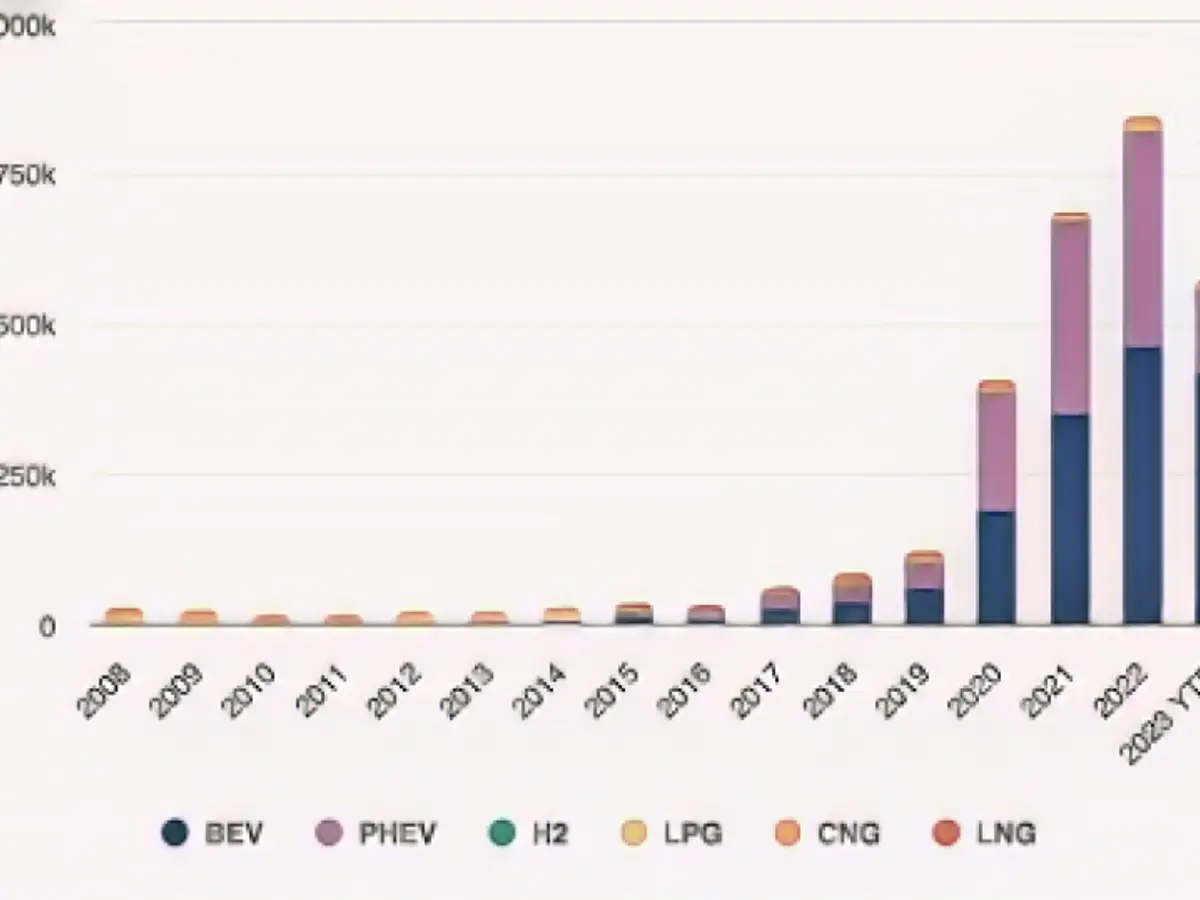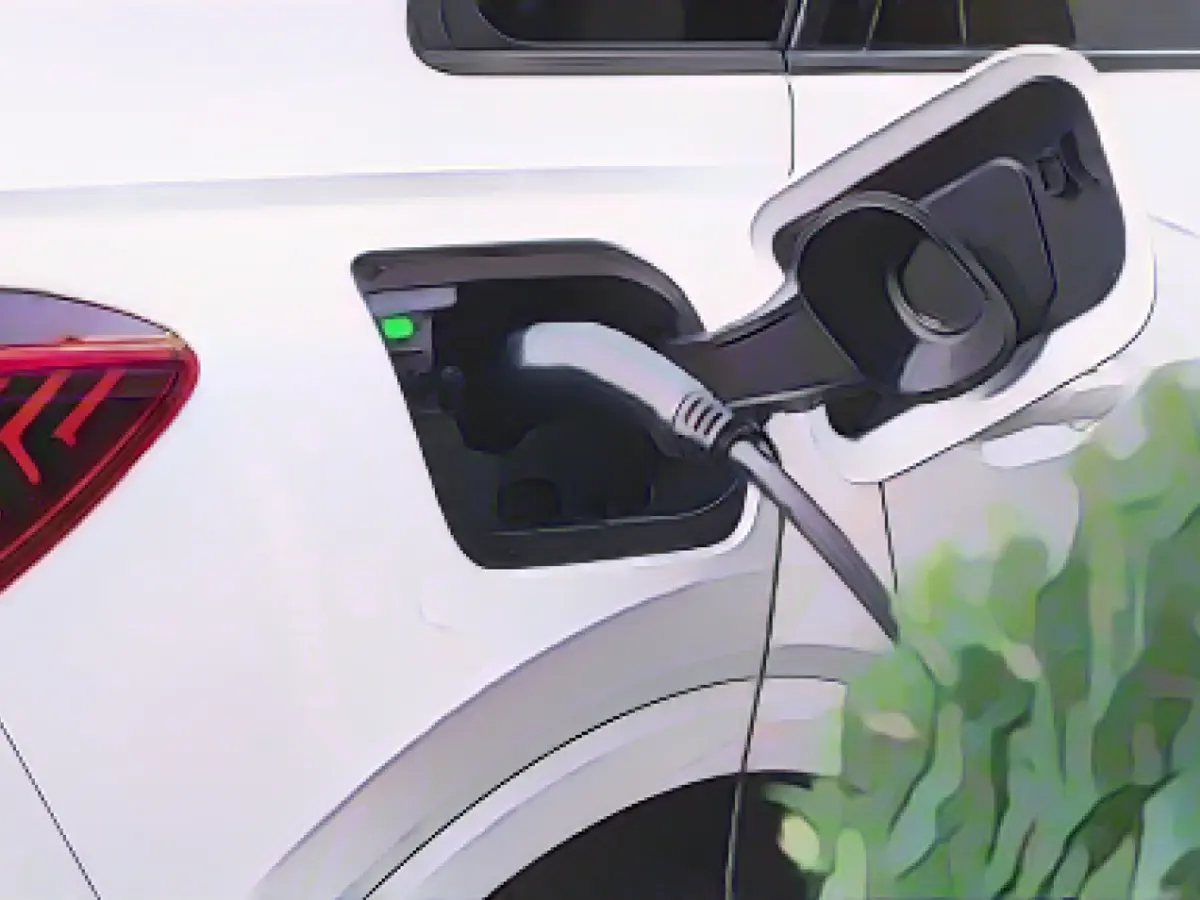Controversial decision - If the subsidy is withdrawn, the market for electric cars will collapse
The state subsidy for electric cars in Germany is coming to an abrupt end. Until a few days ago, buyers of purely electrically powered vehicles could still count on a government "environmental bonus" of 4500 euros - plus a share that was paid by the manufacturer. This is now history almost from one day to the next, with the subsidy for electric vehicles becoming another victim of the Karlsruhe debt brake ruling.
What this step means is foreseeable, car manufacturers are already reacting in panic with their own discounts and experts are warning of a massive slump in demand. After all, the support had already been reduced at the beginning of the year, and even then there were warnings that the market could dry up. In fact, new registrations of purely electric cars in 2023 have already fallen slightly compared to the previous year, while those of plug-in hybrids - for which the subsidy has been completely removed - have plummeted.
A look at other European markets in which subsidies for electric cars have been cut back completely or temporarily shows that these fears are all too justified. The Nordic countries in particular, where there was a strong focus on battery-powered vehicles early on, act as a test laboratory in which the effects of individual subsidy packages can be seen.
Denmark: Government buckles
Denmark is a particularly clear example. The country is one of the better developed markets in terms of electromobility - with just under 34 percent of new registrations, it is currently ahead of Germany. However, it got off to a bumpy start: until 2015, the rule in Denmark was that buyers of electric cars did not have to pay registration tax, a mandatory fee that can quickly become very high. In 2015, a new liberal government took over with a plan to gradually reduce this incentive. The result was a dramatic slump in demand: in 2016, new registrations of e-vehicles in Denmark were just over a quarter of the previous year's figure and subsequently remained at this level. The market effectively stopped growing.
In light of this shock, the subsidies were restarted in 2019, which had immediate consequences: in 2019, the number of new registrations exceeded 2015 for the first time and has been rising steeply ever since. The subsidy regime had flexed its muscles.

Netherlands: run before the end
In the Netherlands, comparable to Germany in terms of market share, the effect a date threshold can have was observed in 2020. For local zero-emission cars used as company cars, there was a clear tax advantage for the private share, which was, however, reduced: in 2020, users paid eight percent, from 2021 onwards twelve percent was to apply, with a further increase in 2022. At the same time, the price threshold up to which this benefit was granted was lowered.
The result: a run on electric cars in December 2020 and a widespread slump throughout the following year. New registrations of battery vehicles fell and did not recover until 2023.
Norway: slump in the model country
The example of Norway shows that government incentives still play a role even in highly developed markets. The non-EU country is the world leader in the share of electric vehicles, with a market share of 83% for all-electric cars in 2023 (compared to 18% in Germany). The reason for this enormous development is a whole arsenal of support measures: lower registration taxes when buying a car, exemption from VAT, significantly lower vehicle tax, advantages when used as a company car and a range of privileges such as the option of parking free of charge or charging your car for little money or free of charge.
The goal was ambitious, but not unrealistic: by 2025, not a single new combustion engine is to be sold and all newly registered cars are to be e-vehicles. However, this target is now in jeopardy because Norway is also cutting back on subsidies. The tax breaks for new cars were reduced in 2023 and the advantage for electric company cars was removed. As a result, new registrations of electric cars fell in 2023 for the first time since 2016. The exact drop will not be clear until the end of the year, but it is likely to be a double-digit percentage in any case.
One thing seems clear: without massive government subsidies, the existing market for electric cars in Europe would hardly have gotten off the ground, as the price differences were initially too great and the added value of a battery-powered vehicle compared to a combustion engine was too opaque. However, this realization also has a downside: Whenever subsidies are melted away, buyer interest declines rapidly. An experience that Germany is now also likely to experience.
This article first appeared on Capital.de.
Read also:
- Why there is still no EU funding for green Saar steel
- 3 billion Saar Fund is unconstitutional
- Lack of snow also opens up new opportunities for winter tourism
- Abrupt end to e-car subsidies
- In response to Germany's decision to end the subsidy for electric cars, manufacturers in Norway are also offering significant discounts on electric vehicles, fearing a similar market collapse as in Germany.
- Denmark, which currently has the highest percentage of new electric car registrations in Europe, experienced a dramatic decrease in demand after subsidies for electric vehicles were partially removed in 2015.
- Similarly, the Netherlands saw a decline in new electric car registrations following the reduction of tax benefits for electric cars used as company cars in 2020.
- Despite being a model country for electric mobility with a 83% market share of all-electric cars in 2023, Norway is now experiencing a decrease in new electric car registrations after reducing tax breaks and advantages for electric vehicles in 2023.
Source: www.stern.de








